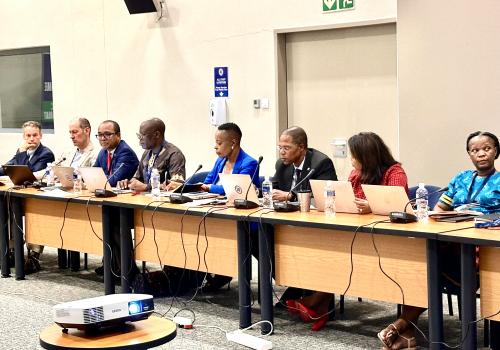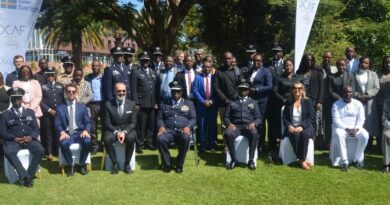SADC Achieves Strides in Trade, Industry, Finance, and Investment Sectors
The Southern African Development Community (SADC) continues to make significant strides in advancing regional economic integration, particularly in the realms of Trade, Industry, Finance, and Investment (TIFI).
This progress was emphasized during the recent TIFI Thematic Group meeting held on February 29th, 2024, at the SADC Headquarters in Gaborone, Botswana.
Chaired by Mr. Sadwick Mtonakutha, Director of Finance, Investment, and Customs (FIC) at the SADC Secretariat, along with Ms. Annelene Bremer, Counsellor for Development Cooperation from the Embassy of the Federal Republic of Germany to Botswana and SADC, the meeting highlighted several noteworthy achievements across various sectors.
In the sphere of Industrialization, significant progress has been made in capacity building and enhancing private sector involvement in regional value chains. Notably, the Kingdom of Eswatini, the Republics of Zimbabwe, and Malawi have launched new industrial policies aligned with regional strategies, following capacity building efforts through the Enhancing the Quality of Industrial Policies (EQuIP) methodology.
Moreover, the Support towards Industrialization and Productive Sectors in the SADC region (SIPS) program, coordinated by the SADC Secretariat and implemented by the Deutsche Gesellschaft für Internationale Zusammenarbeit (GIZ), has facilitated substantial results in private sector engagement within regional value chains.
These results include employment opportunities, networking support, training initiatives, financing options, and environmental sustainability efforts for numerous beneficiary companies.
In Trade, the accession of the United Republic of Tanzania to the SADC Protocol on Trade in Services expands the number of member states to 12. Negotiations for phase II services sectors are set to commence in April 2024, alongside ongoing efforts to strengthen the implementation of the SADC Free Trade Area (FTA), with Angola and DRC being notable exceptions.
The Finance sector witnessed the operationalization of the SADC Anti-Money Laundering/Countering the Financing of Terrorism (AML-CFT) Committee, as well as ongoing discussions regarding the establishment of the SADC Regional Development Fund (RDF).
However, despite these advancements, the meeting acknowledged several binding constraints hindering SADC economic integration, including inadequate infrastructure, skills deficits, and financial insufficiencies.
Mr. Dhunraj Kassee, Director of Industrial Development and Trade at the SADC Secretariat, urged International Cooperating Partners (ICPs) to bolster collaboration and support strategic initiatives aimed at addressing these challenges.
Additional source: SADC Secretariat



